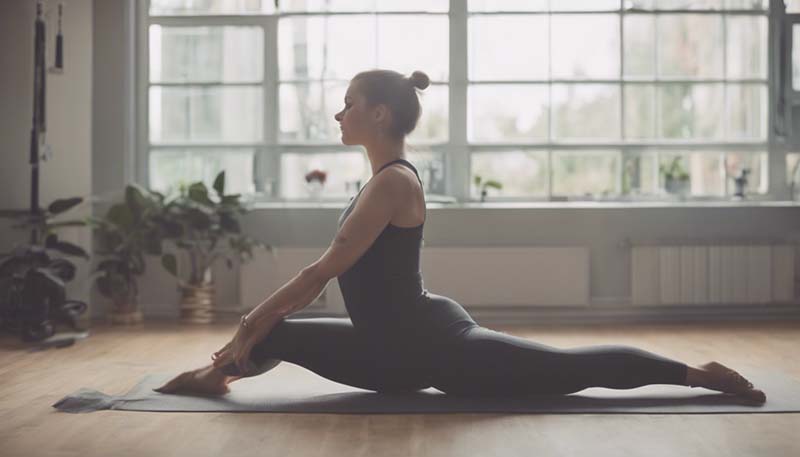The Importance of Stretching and How to Incorporate It into Your Routine
Introduction
Stretching is an often overlooked aspect of physical fitness,yet it plays a crucial role in maintaining flexibility,enhancing performance,and reducing the risk of injury.Whether you're a professional athlete,a fitness enthusiast,or simply looking to improve your overall health,incorporating stretching into your routine can provide a multitude of benefits.This article will delve into the importance of stretching,explore the different types of stretches,and provide guidance on how to effectively incorporate stretching into your daily routine.
The Benefits of Stretching
1.Improved Flexibility
Regular stretching can significantly increase the range of motion around your joints,allowing for greater flexibility and ease of movement.
2.Reduced Risk of Injury
Stretching helps to maintain the elasticity of your muscles and tendons,reducing the likelihood of strains and tears that can occur during physical activity.
3.Enhanced Athletic Performance
Increased flexibility can lead to better athletic performance by allowing for a greater range of motion,which can translate to more powerful and efficient movements.
4.Better Posture
Stretching can help to correct muscle imbalances and improve posture by strengthening the muscles that support the spine.
5.Reduced Muscle Soreness
Proper stretching can help to alleviate muscle soreness and stiffness,particularly after a strenuous workout or period of inactivity.
6.Increased Circulation
Stretching can promote better blood flow to your muscles,which can aid in recovery and the delivery of oxygen and nutrients to muscle tissue.
Types of Stretches
1. Static Stretching
Static Stretching
Static stretching involves holding a stretch for a period of time,typically 10-30 seconds.This type of stretching is best for improving flexibility and is commonly used as a cool-down after a workout.
2.Dynamic Stretching
Dynamic stretching involves moving through a range of motion,such as arm circles or leg swings.This type of stretching is great for warming up the muscles and preparing them for more intense activity.
3.Ballistic Stretching
Ballistic stretching involves bouncing movements that force the muscle to stretch.This type of stretching can be risky and is not recommended for those who are not well-conditioned or are new to stretching.
4.Proprioceptive Neuromuscular Facilitation (PNF)
PNF stretching involves a partner or a device to provide resistance,which can help to improve flexibility and muscle control.This type of stretching is often used in physical therapy and by athletes.
How to Incorporate Stretching into Your Routine
1.Warm Up
Before stretching,it's important to warm up your muscles with light aerobic activity,such as jogging in place or brisk walking,for about 5-10 minutes.
2.Start with Dynamic Stretches
Begin your stretching routine with dynamic stretches to prepare your muscles for more intense activity.This can include exercises like leg swings,arm circles,or high knees.
3.Follow with Static Stretches
After your dynamic stretches,move on to static stretches to improve flexibility.Hold each stretch for 10-30 seconds and focus on major muscle groups.
4.Cool Down with More Static Stretches
After your workout,perform static stretches again to help your muscles recover and maintain flexibility.This is also a good time to stretch any muscle groups that may have been neglected earlier.
5.Consistency is Key
Make stretching a regular part of your routine.Consistency is important for seeing improvements in flexibility and preventing injury.
6.Listen to Your Body
Always listen to your body and never force a stretch to the point of pain.If you feel discomfort,ease off and try a gentler stretch or modify the position.
Conclusion
Stretching is an essential component of any fitness regimen,regardless of your activity level or fitness goals.By understanding the importance of stretching,knowing the different types of stretches,and incorporating them into your routine,you can improve your flexibility,reduce the risk of injury,and enhance your overall performance.Start today by adding a few minutes of stretching to your day and experience the benefits for yourself.
Comment